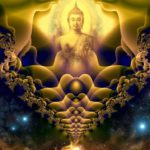Recent Comments
- Chodpa on The Place where the Primordial Speaks
- Chodpa on The Cuckoo of Presence
- Afzar on Bodhidharma’s teacher, Prajnatara
- Vajragoni on Audiobook is released
- Scott on Audiobook is released
-
Recent Posts
Categories
- A Darkness Visible
- A Docetic Assessment
- A Mystical Odyssey through the Sagathakam
- AI Creations
- Akṣayamatinirdeśasūtra
- Akṣhobhya’s Pure Land
- Ālaya-vijñāna
- Anūnatvāpūrṇatvanirdeśaparivarta
- Ariyapariyesanā Sutta
- Ascending the Noble Mountain of Primordial Perfection
- Asceticism
- Ashtavakra Gita in Light of the Unborn
- Audiobook
- Bankei Zen
- Beyond the Ascent
- Beyond the Rainbow Body
- Black Dragon Eye Mandala
- Bodhicitta
- Buddhadharma
- Buddhism’s Black Holes
- Buddhist Anecdotes
- Buddhist Hells
- Buddhist Meditations on the Tarot
- Chuang-Tzu
- Contemporary Musings
- Ḍākiṇī
- Dāsbodh
- Dharmakaya Abbey
- Dharmakaya Stick
- Divine Revelation
- Doctrine of the Void
- Dust Contemplation
- Ekacitta: Advanced Studies in Dark Zen
- Entry into the Dharmadhātu
- Eremitical Dhyani Meditations
- Exploring the Book of Revelation
- Gnostikos
- Hsin Hsin Ming
- Journey to the Center of the Mind
- Karma and Rebirth
- Korean Sŏn
- Kulayarāja Tantra—The Motherly Buddha
- Little Office of Our Lady of the Void
- LSD and Psychedelic Buddhism
- Māṇḍukya Kārikā
- Mañjuśrī Teaches Prajñāpāramitā
- Māra and Satan
- Meister Eckhart
- Mud and Water: Bassui Zen
- Mystagogia
- Nirvana
- Notes from the Iron Stupa
- Nothingness in Nāgārjuna and John of the Cross
- Obscure Religious Cults
- Preparation for the Afterlife
- Primordial Qigong
- Reflections on the Saṃdhinirmocana Sūtra
- Spirituality
- Springtime with Tozen
- Terma: A Mind Film by Vajragoni
- The Afterglow
- The Awakening of Faith
- The Bhagavad Gita
- The Book of Bodhi
- The Cloud of Unknowing in Light of the Unborn
- The Diamond Sutra
- The Divine Ātman
- The Divine Liturgy of Vajrasattva
- The Doctrine of Awakening
- The Dragon Mind of Zen Tarot
- The Elucidation of Consciousness
- The Experience of No-Self
- The Great Perfection of the Unborn Mind: A Book of Privy Counseling
- The Heart Sutra
- The Hermit's Den
- The Khaggavisāṇa Sutta: A Rhinoceros Horn
- The Lankavatara Sutra
- The Lankavatarian Book of the Dead
- The Lion's Roar of Queen Śrīmālā
- The Lotus Sutra
- The Mahāparinirvāṇasūtra
- The Naga Chronicles
- The Platform Sutra
- The Ratnagotravibhāgaśāstra
- The School of the Spirit
- The Secret Golden Light of the Unborn
- The Soul
- The Śūrańgama Sūtra
- The Sutra of Primordial Enlightenment
- The Tathāgatagarbhatārā Tantra
- The Udāna
- The Unborn Mind Mythos
- The Unborn Mind Sessions
- The Unborn Odyssey: A Novel
- The Vajrasamādhi Sutra
- The Vimalakirti Sutra
- The Yogasūtras of Patañjali
- The Zen Teaching of Bodhidharma
- The Zen Teaching of Instantaneous Awakening
- The Zen Teachings of Huang Po
- Theologia Mystica
- Tozen Teaching
- Tsung-mi: An Intimate Study
- Unborn I Ching
- Unborn Light Reiki
- Uncategorized
- Vasubandhu and the Absolute
- Wisdom from the Masters
- Wordsworth and Zen
- Yoga of the Manomayakāya
- Zen
- Zuowang
Archives
- October 2024
- August 2024
- February 2024
- January 2024
- December 2023
- November 2023
- October 2023
- September 2023
- August 2023
- July 2023
- June 2023
- May 2023
- April 2023
- March 2023
- February 2023
- January 2023
- December 2022
- November 2022
- October 2022
- September 2022
- August 2022
- May 2022
- April 2022
- March 2022
- February 2022
- January 2022
- December 2021
- November 2021
- October 2021
- September 2021
- August 2021
- May 2021
- April 2021
- March 2021
- February 2021
- January 2021
- December 2020
- November 2020
- October 2020
- September 2020
- August 2020
- May 2020
- April 2020
- March 2020
- February 2020
- January 2020
- December 2019
- November 2019
- October 2019
- September 2019
- August 2019
- June 2019
- February 2019
- January 2019
- December 2018
- October 2018
- August 2018
- April 2018
- March 2018
- February 2018
- January 2018
- December 2017
- November 2017
- October 2017
- September 2017
- August 2017
- May 2017
- April 2017
- March 2017
- February 2017
- January 2017
- December 2016
- November 2016
- October 2016
- September 2016
- August 2016
- July 2016
- May 2016
- April 2016
- March 2016
- February 2016
- January 2016
- December 2015
- November 2015
- October 2015
- September 2015
- August 2015
- July 2015
- June 2015
- May 2015
- April 2015
- March 2015
- February 2015
- January 2015
- December 2014
- November 2014
- October 2014
- September 2014
- August 2014
- May 2014
- April 2014
- March 2014
- February 2014
- January 2014
- December 2013
- November 2013
- October 2013
- September 2013
- August 2013
- May 2013
- April 2013
- March 2013
- February 2013
- January 2013
- December 2012
- November 2012
- October 2012
- September 2012
- August 2012
- May 2012
- April 2012
- March 2012
- February 2012
- January 2012
- December 2011
- November 2011
- October 2011
Meta
Tag Archives: ehipassiko
Right View

In the realm of Buddhism, there exists a noble pursuit, a quest to perceive the world in its unadulterated form, devoid of any distortions or illusions. This pursuit is known as Yathabhutam, a profound endeavor to truly “see” the essence of Reality as it truly is, stripped of any superficial manifestations. However, it seems that within the contemporary Buddhist landscape, this timeless wisdom has been forgotten, overshadowed by a rampant wave of spiritual materialism. This misguided approach, centered around self-indulgence and human-centered ideologies, has led many astray from the path of true enlightenment. It begs the question, can anyone awaken from this delusion and recognize the inherent absurdity of this paradoxical notion? It is truly foolish to equate the spiritual with the material, and those who do so fail to grasp the essence of Buddhism itself. Yet, this distorted perspective has become the prevailing ideology in modern Buddhism, replacing the profound teachings of the Buddhadharma with shallow and superficial notions of holistic development. In reality, this approach only serves to imprison the spirit within the chains of material desires, constantly bombarding us with the allure of sensual gratification, a constant reminder of our entrapment.
Posted in Spirituality
Tagged come and see, ehipassiko, Right View, spiritual materialism, Yathabhutam
Leave a comment
Technique #4: Yathabhutam Ho

Question: The Dhyana Technique in Shoden Session # 4 has a most unusual name…Yathabhutam Ho…what does this term mean?
Posted in Unborn Light Reiki
Tagged apophatic, ehipassiko, prapancopasama, Right Mindfulness, Yathabhutam
Leave a comment
Saturday Vespers

Saturday
Vespers
Blessed One, come to my assistance
O’ Lord, make haste to help me
Glory be to the Blessed Buddha and to the Divine Dharma and to the Hallowed Sangha, both now and forever and ever. Swaha.
Ascending the Noble Mountain of Primordial Perfection

For some time now this blog has been presenting the Way of the Unborn through different modalities: Within Yogic parameters the The Yogasūtras of Patañjali and The Bhagavad Gita portray the ascetical discipline necessary in which to put to rest the appetite for carnal things within which the Unborn can be approached freely and unobstructed. The Lankavatarian Book of the Dead, The Tathāgatagarbhatārā Tantra, and Notes from the Iron Stupa comprises a Tantric Trilogy which encompasses Atiyoga, Mahayoga, and Anuyoga all highlighting elements of Sacred Tantra, the Bardo Realms, and even Shamanistic components that altogether constitute transcending the skandhic potpourri and stimulating the direct Primordial Ascendency of the Unborn. This past Spring’s, The Secret Golden Light of the Unborn, highlighted the Golden Spiritual Elixir of the Unborn as its channeled through the chakras with the Great Turn-About in the inner depths of consciousness in order to discover that Golden-Thread, which if faithfully followed, would lead one back to their True Primordial Home. With the recent conclusion of the Unborn I Ching series we explored certain Divine-aspects of Divination, which accompanied by an earlier sister series that also highlighted aspects of divination that was nuanced with Tozen’s splendid early teachings on the Unborn, The Dragon Mind of Zen Tarot. Indeed, divination if approached from a transcendent angle accompanied with Right Gnosis reveals how the abiding primordial functions of the Unborn can be a constant companion and mentor on the spiritual journey. Another element that the Unborn I Ching series expounded upon was the further extension and exposition of the fourth constituent of the Noble Truths. As one progresses on the Noble Road to Self-realization it becomes evident that they go beyond the standardized “Eight-fold Path”—which was meant for novices in order for the early development of a sound foundation—as there are a vast array of Noble Truths (beginning with the Bodhisattva path) revealed when the adept matures in the further unfoldment of the Buddhadharma. Along with Right Conduct would eventually come Right Discernment and even Right Analysis; for our upcoming series the emphasis is on Right Contemplation. Doctrinal series like The Awakening of Faith and The True Lion’s Roar of Queen Śrīmālā depict sound Mahayana Principles that highlight the unique position of the Unborn in terms of Tathagata-garbha formulations. Of course, our numerous series on pertinent sutras also contribute to principles that pertain to the Unborn. Tozen’s marvelous Tozen Teachings empower the adept to attune to the Way of the Unborn in his own singular fashion.
Posted in Ascending the Noble Mountain of Primordial Perfection, Spirituality
Tagged Absolute Contemplation, Active Contemplation, Actual Self, apophatic way, Ascent of the Mount, Ascesis, Dark Night, Dark Night of the Senses, dark night of the spirit, declamatio, ehipassiko, En-Darkening, eremitical-monastic lifestyle, Illuminative Way, Infused Contemplation, intuitive darkness, John of the Cross, Noble Truths, Pseudo Dionysius the Areopagite, quietism, Real Recollection, Right Acsesis, Right Analysis, Right Conduct, Right Contemplation, Right Discernment, Right Gnosis, Yathabhutam
3 Comments
Seeing Yathābhutam
The Buddha’s most prominent stance was ehipassiko—come and see. Come and see, on your own, the nature of Reality (Dharmadhatu) AS IT IS, or Yathābhutam. The blog The Undiscovered Country: Bardo 3, Yathabhutam offers a nice exposition of the term.
Posted in The Doctrine of Awakening
Tagged ariya, ehipassiko, Lankavatarian, Mahabodhicitta
Leave a comment
THE Salvific Text
We’re mid-way through our Lotus Sutra series and are about to make a complete 180° turn in focus. Whereas the previous nine-chapters spotlighted “skillful-means” and the myriad ways the Tathagatas bring sentient beings to awakening, the limelight will now shine on the Lotus-Sutra Text itself as the one and exclusive salvific medium. Chapter 10 wastes no time in asserting right off the bat that this medium is meant to be the salvific tool for all lifeforms:
Posted in The Lotus Sutra
Tagged Bodhisattva, Dharma, ehipassiko, Lotus Sutra, Nichirenism, sacred text, sola-scriptura
2 Comments
No Attainment, No Teaching
Seven: No Attainment, No Teaching
The Lord Buddha addressed Subhuti, saying : ” What do you think, Subhuti? Has the Tathagata really attained to supreme spiritual wisdom? Or has he a system of doctrine which can be specifically formulated?”
Posted in The Diamond Sutra, Zen
Tagged Buddhadharma, dogmatism, ehipassiko, Kalama Sutra, No Attainment, No Teaching
Leave a comment
